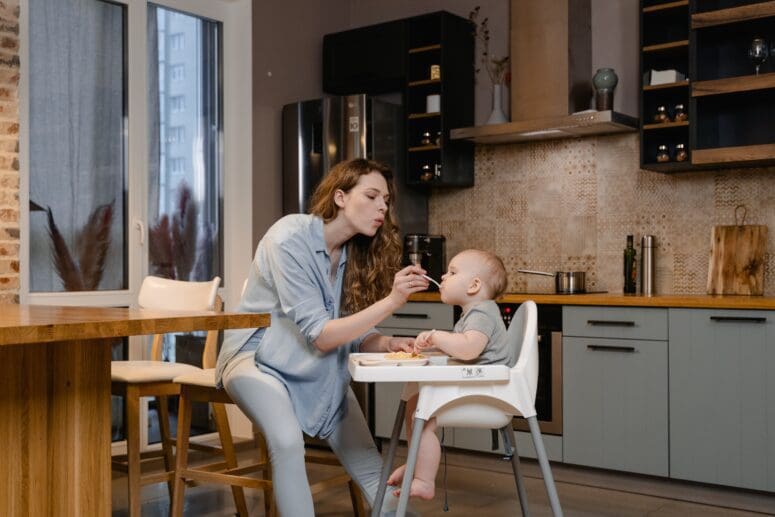Is It Really Possible to Divorce Amicably?
Divorce is often portrayed as a battle, rife with conflict and heartache. Yet, there’s a growing trend towards ending marriages as peacefully as possible. Amicable divorce, a concept once considered an oxymoron, has now emerged as a genuine possibility for many couples. Although many people agree with the concept of an amicable divorce, is it really possible? This blog will explore the practical steps and mindset shifts necessary for couples who wish to respectfully close the chapter of their marriage without acrimony, recognizing that shared history and mutual respect can pave the way for a harmonious future apart.

The statistics surrounding divorce paint a varied picture. According to reports from the American Psychological Association, around 50 percent of married couples in the United States divorce. There’s an increasing trend in those over the age of 50 divorcing too. However, the frequency of amicable divorces is harder to quantify. But research does indicate that older people generally express more of a desire for an amicable divorce. Despite this wish, the reality is often more complex, with emotions and practicalities creating hurdles. Understanding these statistics is crucial as they highlight not only the commonality of divorce but also the potential for ending marriages in a respectful manner, suggesting that with the right approach, an amicable divorce is within reach for many.
Practical Steps for Pursuing an Amicable Divorce
To pave the way for an amicable divorce, there are several practical steps that must be considered first. It is vital to engage in honest and open communication, setting a tone of transparency and respect right from the start. It’s also essential to seek professional guidance from lawyers who specialize in mediation, as they can facilitate a more cooperative process. Look for highly recommended experts in your area who can guide you, such as the best divorce lawyer in Miami. Specialist lawyers can create a detailed plan that addresses the division of assets, child custody arrangements, and financial support is indispensable for avoiding contention. Both parties should aim for flexibility and be willing to make compromises to meet each other’s needs and concerns. Attending co-parenting classes can be invaluable for those with children, as it helps to focus on the well-being of the family as a whole. Embracing these practical steps can lead to a more peaceful resolution and set a positive foundation for the future post-divorce relationship.
Embracing a Collaborative Mindset
Entering the divorce process with a collaborative mindset is essential for achieving an amicable outcome. Both parties must prioritize their shared goals over individual wins, recognizing that cooperation will yield better results than confrontation. This includes acknowledging the emotional aspects of the divorce while staying solution-focused. Actively practicing empathy by considering the other person’s perspective can reduce conflict and facilitate a smoother negotiation. Collaboration means choosing your battles wisely and letting go of the urge to ‘win’ at the other’s expense. Often, hiring a collaborative divorce attorney, who can steer discussions toward common interests rather than adversarial positions, proves to be invaluable. Adopting this approach early on can greatly influence the tone and trajectory of the entire divorce process.
Maintaining Respect and Dignity
Another key element for an amicable divorce is maintaining a sense of respect and dignity throughout the process. This means avoiding negativity in speech, whether in private or public, and especially in front of any children involved. It’s beneficial to create and agree upon boundaries regarding personal space and privacy, which can mitigate misunderstandings and respect each individual’s autonomy during this transition. Abstaining from using past grievances as leverage and instead focusing on the way forward exemplifies maturity and fosters a respectful environment. Recognizing that both partners are going through a difficult phase and deserving of mutual respect can be the cornerstone of a peaceful resolution and can even preserve a positive post-divorce relationship, which is particularly important for co-parenting.
Nurturing Personal Growth and Healing Post-Divorce
As couples navigate through the process of an amicable divorce, it’s equally important to pay attention to personal growth and healing once the formal proceedings have concluded. After separation, individuals should take time for self-reflection and to re-establish their personal identity independent of the partnership. This might involve pursuing new hobbies, reconnecting with friends, or seeking personal development through therapy or support groups. Engaging in activities that promote physical wellness and mental health can also facilitate a more resilient outlook on life. It’s beneficial to view the post-divorce phase not as an end but as a beginning to a new chapter, where personal fulfillment and happiness can be rediscovered on one’s own terms. By focusing on healing and growth, ex-partners can move forward with their lives, each embarking on a journey that is reflective of their needs and aspirations.
Prioritizing Children in Amicable Divorces
When it comes to amicable divorces, prioritizing the well-being of children is of utmost importance. Children can be particularly vulnerable during the upheaval of a family’s separation, and it is essential that their needs are addressed with sensitivity and care. Establishing a consistent routine and open lines of communication between both parents and children is fundamental. This may include agreements on co-parenting schedules, shared holidays, and involving children in discussions appropriate to their age, providing them a sense of security and inclusion. Parents should reinforce that despite the changes within the family dynamic, the love and commitment to their children remain steadfast. Practices such as collaborative parenting plans and family therapy can be invaluable in maintaining a stable environment for children and ensuring that their transition during this period is as smooth as possible. Upholding a united front in parenting decisions also sends a strong message of parental alliance, even during times of personal change.
An amicable divorce is achievable when couples embrace transparent communication, collaboration, mutual respect, and a child-centric approach. Such a divorce lays the groundwork for personal growth, healing, and a positive co-parenting relationship, turning a challenging life event into a foundation for a respectful and constructive future.








